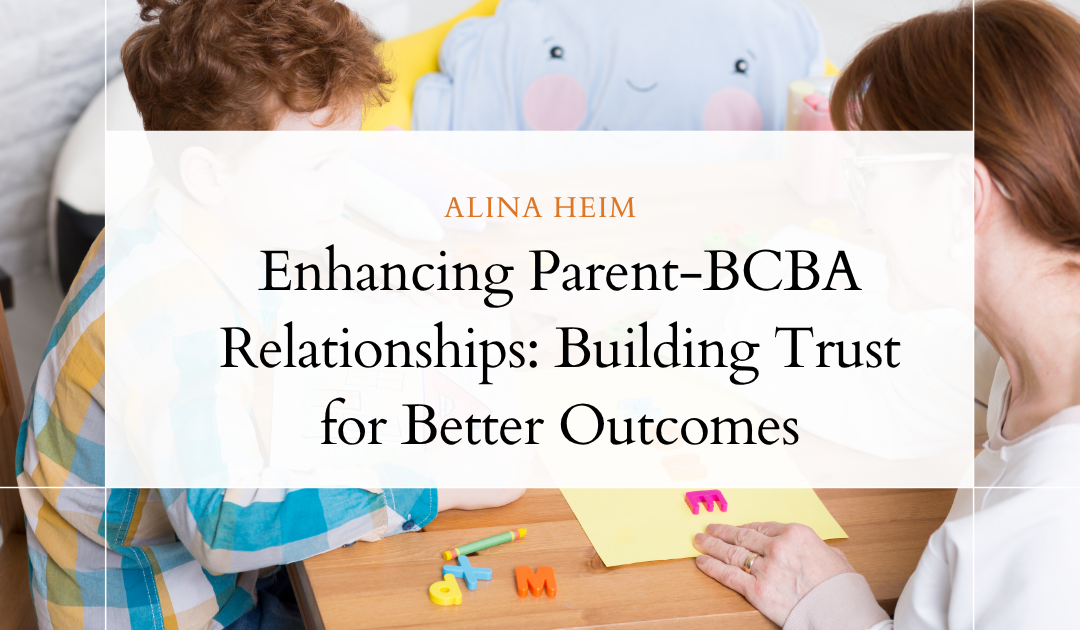The relationship between Board Certified Behavior Analysts (BCBAs) and parents is a critical element of effective Applied Behavior Analysis (ABA) service delivery. A strong, collaborative partnership leads to more consistent implementation of behavior plans, greater trust in the process, and better outcomes for the individual receiving services. This blog explores practical strategies for strengthening the parent-BCBA relationship.
Why the Relationship Matters
- Consistency Across Settings: Parent engagement ensures that strategies used in therapy are reinforced at home.
- Improved Communication: A trusting relationship facilitates open and honest dialogue.
- Empowerment: Parents who feel supported are more likely to follow through with interventions.
- Better Outcomes: When professionals and families work together, goals are achieved more efficiently and effectively.
Core Principles of a Strong BCBA-Parent Relationship
- Mutual Respect
Acknowledge the parent’s deep knowledge of their child and validate their role as a co-expert in the process. - Transparency
Clearly explain the rationale behind interventions, assessment procedures, and progress monitoring. - Collaboration
Involve parents in treatment planning, goal setting, and data review. Ask for their input and preferences. - Empathy and Support
Recognize the challenges families face and offer emotional support alongside practical strategies. - Cultural Competence
Be sensitive to family traditions, communication styles, and cultural values that influence parenting practices.
Practical Strategies for Enhancing Collaboration
- Regular Communication: Schedule consistent check-ins, whether in-person, via phone, or through digital tools.
- Active Listening: Give full attention, reflect back what you hear, and validate concerns.
- Clear Documentation: Share visual data, progress reports, and plain-language summaries.
- Shared Decision-Making: Invite parents to help choose goals and strategies that align with their values.
- Flexible Scheduling: Accommodate family routines and responsibilities when planning sessions or meetings.
- Educational Resources: Provide handouts, videos, or workshops that help parents understand ABA principles.
Navigating Challenges
Even the best relationships can face difficulties. Here are ways to manage common issues:
- Disagreements Over Goals or Methods: Use data to guide discussions and seek compromises that still meet treatment needs.
- Lack of Follow-Through at Home: Revisit goals, simplify tasks, and offer additional support or coaching.
- Communication Breakdowns: Reinstate regular meetings, clarify expectations, and reaffirm the shared goal of helping the child.
Ethical Considerations
According to the BACB Ethics Code, BCBAs must:
- Involve clients and stakeholders in planning and consent.
- Ensure services are culturally and socially valid.
- Maintain professional boundaries while being approachable and supportive.
Conclusion
Building a strong parent-BCBA relationship is a dynamic, ongoing process that requires commitment, respect, and open communication. When professionals and families work in partnership, the result is a more effective, compassionate, and sustainable approach to behavior change. Investing in this relationship benefits not only the individual receiving services but also fosters a supportive and empowered family system.

